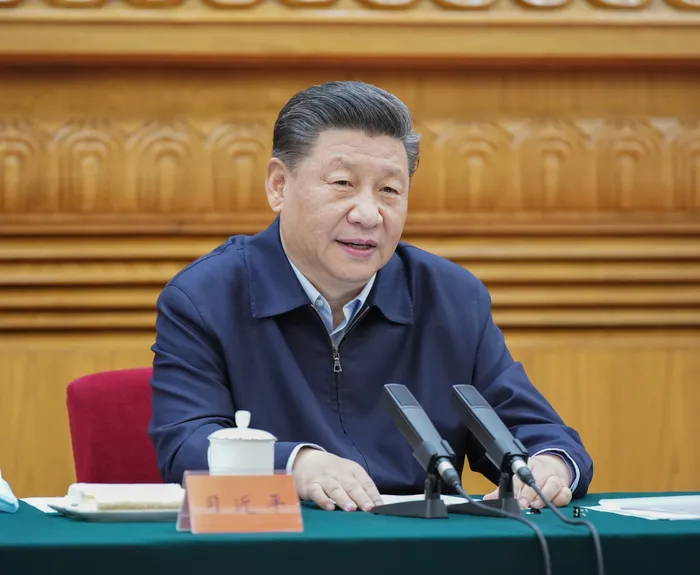
President Xi Jinping promised that China would help Africa with equipment needed to stem the spread of Covid-19. Picture: IANS President Xi Jinping promised that China would help Africa with equipment needed to stem the spread of Covid-19. Picture: IANS
Africa and China have shared a fascinating and resilient relationship.
Most episodes of this relationship have been characterised by periods of solidarity and concerted efforts to engender fairness in the international system. It is this background that informs Afro-Chinese relations during these trying times that have been beset by the coronavirus.
Recently, Africa and China hosted the China-Africa Extraordinary Summit. The summit was led by China, Senegal (in its capacity as co-host of the Forum on China-Africa Co-operation - Focac), and South Africa (as the current chair of the AU). Dr Tedros Adhanom Ghebreyesus, the director-general of the World Health Organization (WHO) also attended.
President Xi Jinping promised that China would help Africa with equipment needed to stem the spread of Covid-19. China also promised to waive some debt from African countries due this year. It also promised to restructure some time frames for repayment from some countries. These measures are not unique; the Group of 20 has also pledged leniency to low-income countries encumbered with debt.
What makes China’s undertaking telling is that China has also been enlisted by the AU Commission to build the headquarters of Africa’s Centre for Disease Control (CDC) in Ethiopia. Notwithstanding some unsettled clarification with the site and time frame of the CDC, the fact that China was chosen to lead the building of the centre says a lot about the intensity of Africa-China relations and Africa’s confidence in China as a reliable partner.
China could also rest assured that allegations that emanated about surveillance of the AU headquarters did not considerably dent China’s standing in the eyes of the AU.
The move to invite Ghebreyesus was not a perfunctory decision; it communicated a message to those who doubt the WHO and it was also a vote of confidence in Ghebreyesus.
The US has been the most powerful and scathing critic of the WHO. Its criticism stems from what it perceives as the WHO’s kid-glove approach to China’s response to Covid-19.
The decision by US President Donald Trump to withdraw financial support for the WHO is likely to have devastating consequences on regions like Africa that do not have enough endowments to deal with Covid-19.
The American administration has obviously shown that it cannot be counted upon as a moral leader in the current international system.
For this reason, Africa and China should adjust their expectations of US leadership. Trump will use the same method he used in order to clinch the 2016 election; this method will include employing nationalistic sentiment that borders on racialist politics, and scepticism towards multilateralism. This might help him win the election in the short term, but the consequences of hamstringing institutions such as the WHO will be long term.
Thus, the urgency of Africa’s CDC cannot be overstated. The AU should clear the bureaucratic haziness surrounding the construction of the CDC headquarters. The two parties should also reassure the WHO, which should be the global leader in these trying times, of their support. The legendary Sino-African solidarity is needed now more than ever.
* Monyae is the director for the Centre for Africa - China Studies at the University of Johannesburg.
** The views expressed here are not necessarily those of IOL.
Africa's place in the global fight for technological dominance
Cuba a shining light in fight against coronavirus
Covid-19 is colour blind but world isn't
Racism must not strain SA's Sino ties
A serious crisis will never go to waste
We've done well but we can do better
Covid-19: Ramaphosa has shown he has what it takes
Work in concert to contain virus
Top role in Struggle of two women
